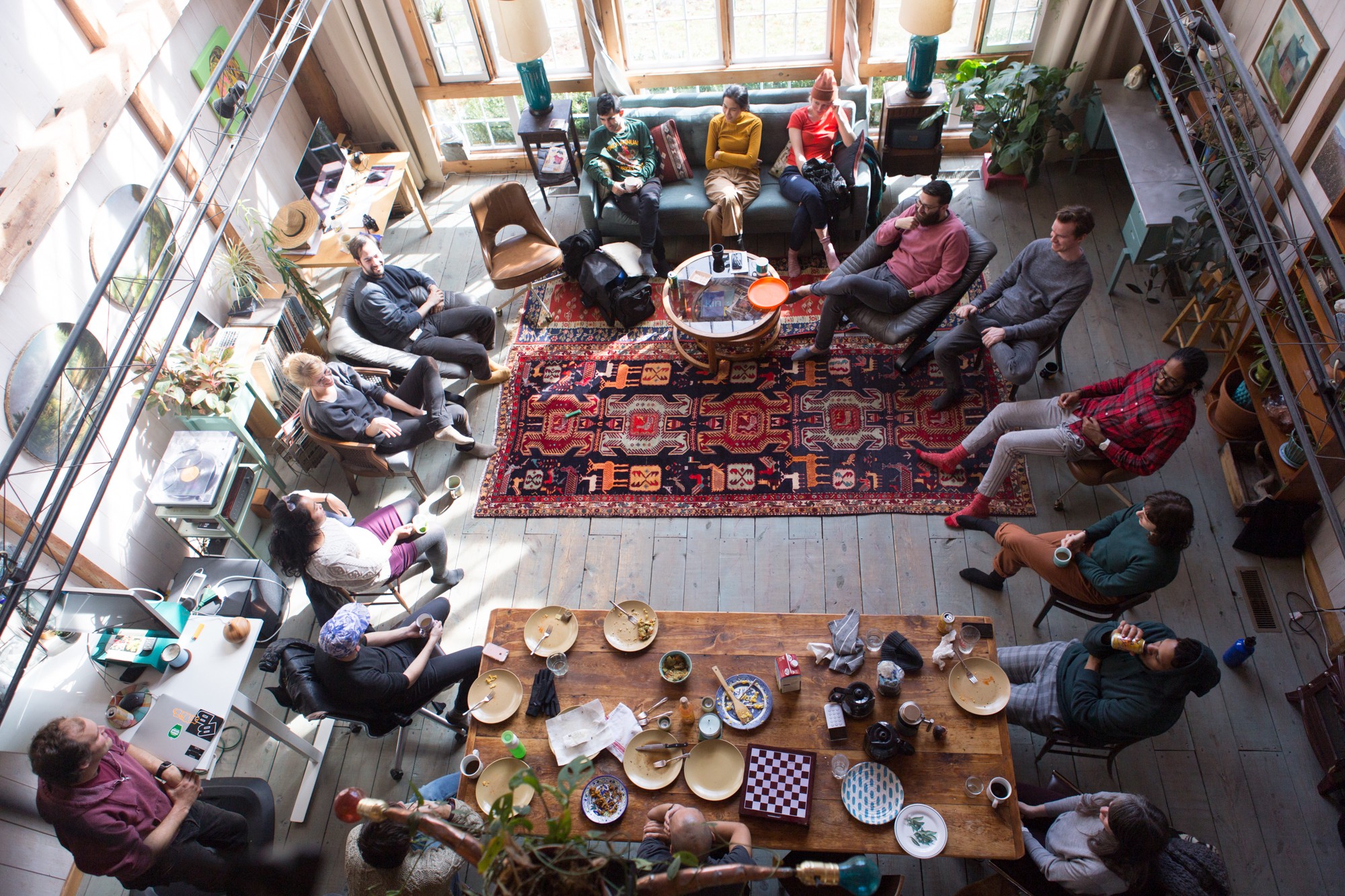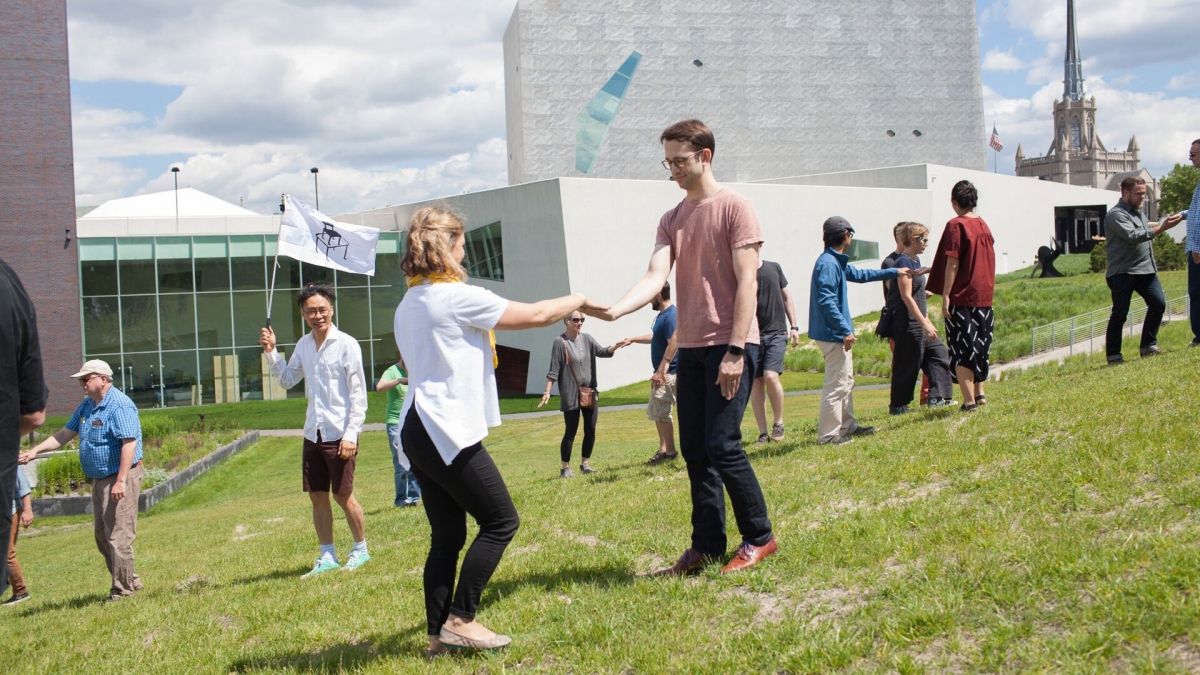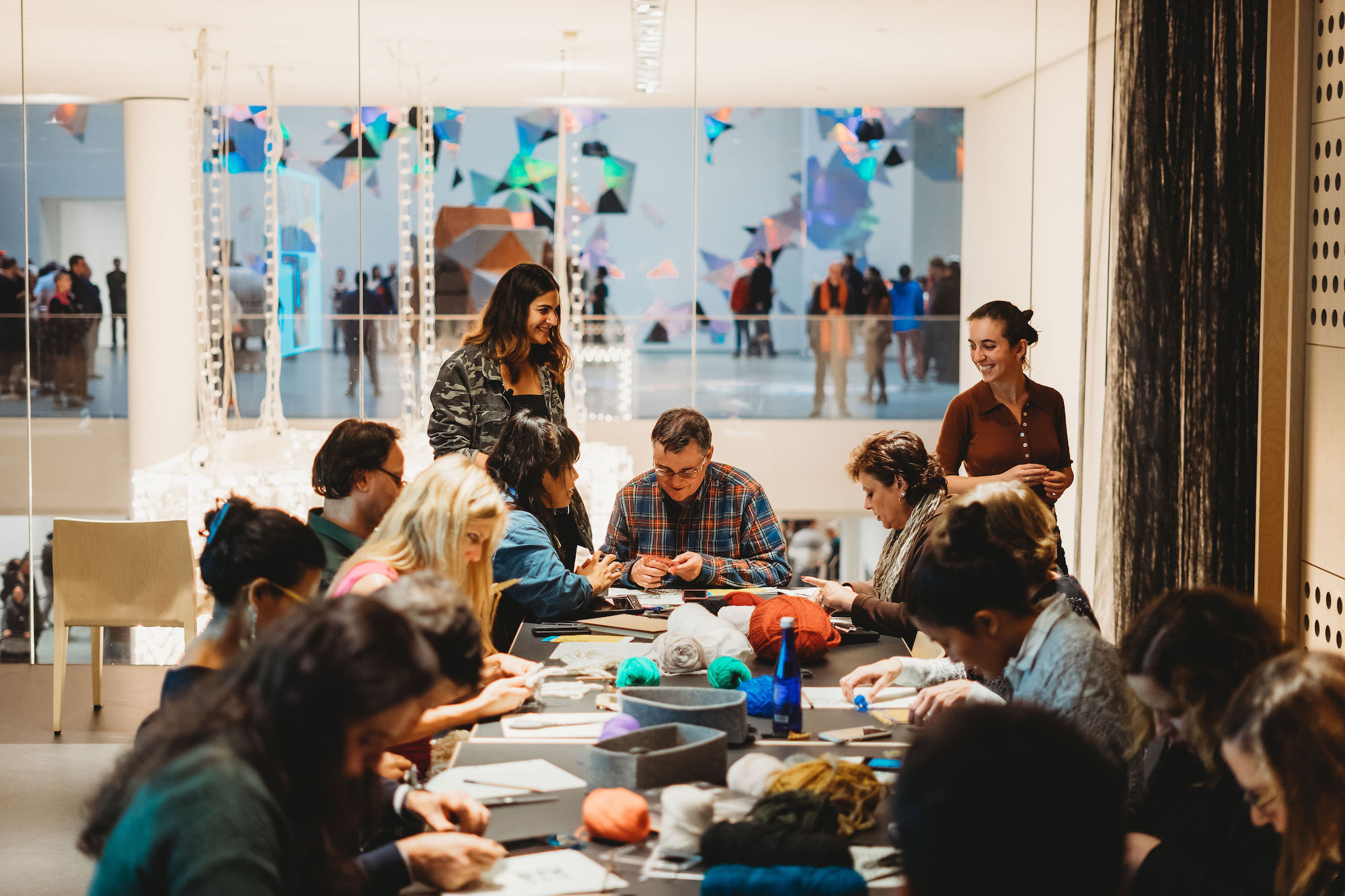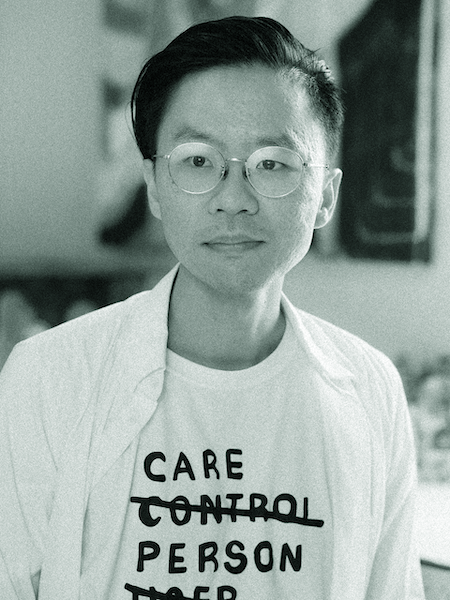
Teaching as Art
- Date: Starting in June 19, 2020 for ten weeks until August 22, 2020. Two sections. Fridays 5-7PM PT (12 AM GMT) and Saturdays 10AM- 12PM EST (2 PM GMT) with asynchronous content and 1:1 office hours
- Teacher: Taeyoon Choi
- Teaching assistant: Ashley Jane Lewis
- Rolling application for Fridays 5-7PM PT (12 AM GMT) is now open until June 18th, 2020
Teaching as Art is for artists and technologists who want to teach. The class is also for teachers who want to advance their art and pedagogy. A good teacher is a great student themself. They transform their curiosity into knowledge and share their learning processes with others. One can learn to become a better teacher by staying fearless about ‘not knowing’ something, embracing radically open ideas and connecting various expertise and knowledge. Teaching can be a form of artistic and creative practice in collaboration with a diverse community. Teachers can invent new forms of learning spaces, new kinds of collaboration and new senses of community. Teachers and students can collaborate on art projects that connect social justice with creative practice. Teaching, learning and unlearning can be a way to make sense of the unsettling world, to build a web of care and accountability and create a micro-institutions for larger, social change.
In this class, students will learn about applying creative processes to teaching. Students will read about the history of artists in and out of academic institutions, Black Mountain College, Socially Engaged Art, as well as more recent experiments in Alternative Education. Students are expected to participate in critical discussions about the topics, offer constructive feedback for each other and share teaching material.
This class was offered at Interactive Telecommunications in New York University’s Tisch School of the Arts in 2017 and 2018 as well as the EYEO Festival in 2017. The class builds upon previous work by SFPC teachers, such as Learning to Learn class by Amit Pitaru and Learning to Teach, Teaching to Learn conference organized by Tega Brain and Taeyoon Choi in partnership with the Processing Foundation. Students of the previous classes went on to become teaching artists in institutions such as MoMA, the New Museum and the Whitney Museum of American Art, professors in various universities, and organizers of Afrotectopia, Computer Mouse Conference and more.
 Teaching as Art workshop at Eyeo Festival 2017.
Teaching as Art workshop at Eyeo Festival 2017.
Hear from the students
Anonymous testimonials from NYU students submitted to the course evaluations between 2017~2018.
What aspects of this course were the most important or helpful to you?
“All of it. I imagine that I may teach quite a bit once I’ve earned my Masters here at ITP and I believe that all of what we talked about and all of what we actually did in the class was extremely helpful in having me to be more open-minded about what teaching can look like.”
“Getting more experience to articulate ideas to other and gaining practice teaching. It was also good to learn about scenarios we might encounter while attempting to teach in the real world/art world.”
What were the objectives of this class?
“To learn to teach! Using the basic fundamentals of pedagogy, curriculum and syllabi building, along with the students’ definition of art, the course taught us many ways to not only teach but also to learn.”
“To make people feel in love with learning. To learn about pedagogy, purpose of learning and teaching, curriculum, the art of creating a syllabus…”
How would you evaluate the instructor?
“Taeyoon is one of the most passionate professors I ever had. He put that in his teaching and this makes students feel very motivated to pursue the topic he teaches.”
“Taeyoon was extremely empathetic and understanding to my situation, and was willing to work with me and allow me to engage at will, as well as gently push me out of comfort zone just enough without me to have issues. I recommend him highly as an instructor!”
“Learning the fundamentals of pedagogy, while also appreciating it’s context in certain art practices. What unique qualities come from combining them? Also, social critique, and “unlearning” as a method of learning in a broader, cultural and political context.”

Weaving and Storytelling at MoMA by Francesca Rodriguez who was a student of Teaching as Art, 2019

Nick Montfort during Learning to Teach, organized by Tega Brain and Taeyoon Choi with the Processing Foundation, 2017
Syllabus
Week 1: Learning. Introduction of the course and the instructor’s practice and Teaching philosophy. Questions about Learning.
Week 2: Curriculum. What is a curriculum? Artists as educators, performance artwork as curriculum, Joseph Beuys & Fluxus, Judy Chicago & Feminism, Allan Kapprow & Happening.
Week 3: Syllabus. What is a syllabus? Create a syllabus from the perspective of a teacher (or a schoolmaster). Your partner will give feedback from the perspective of a student in the school. and vice versa.
Week 4: Pedagogy. Lecture about pedagogy, the craft of teaching. Traditional pedagogy and critical pedagogy, alternative education. Special focus on Lygia Clark.
Week 5: Inclusive Learning. Lecture on marginalization and inclusion in learning spaces. Midterm proposal workshop and Interdependence activity. Discussion on the reading on Socially Engaged Art.
Week 6: Mid-term presentation. Students will present their learning map and plan for the final project
Week 7: Unlearning. Lecture on critical pedagogy. How to combine theory and practice in art and teaching, through unlearning and plasticity, appropriation and representation. Comparative reading of Judith Butler and Martha Nussbaum.
Week 8: Platforms. Lecture on Accessible and inclusive learning spaces, Makerspaces, community spaces, libraries. Special focus on disability and access for Deaf, blind and wheelchair users.
Week 9: Museum as a school. Reading and discussion of Open field at Walker Museum, MoMA’s adult education, Shaun Leonardo’s project at the Guggenheim museum, Art + Technology Lab at LACMA, Machine Project, Triple Canopy and more.
Week 10: Final presentation. Students will present their syllabus and workshop samples. The final presentation will be open to the public via Zoom. Guest critics will participate for feedback session.
Meet the teacher

Teacher: Taeyoon Choi is an artist, educator, and organizer. He is a co-founder of the School for Poetic Computation, an artist-run institution with the motto of “More Poetry, Less Demo!” Taeyoon seeks a sense of gentleness, intellectual kinship, magnanimity, justice and solidarity in his work and collaboration. He has presented installations, performances and workshops at Eyebeam Art and Technology Center, Los Angeles County Museum of Art, New Museum, M+ Museum, Istanbul Design Biennale, Seoul Mediacity Biennale and Venice Biennale for Architecture. He contributed to alternative education such as the Public School New York, Occupy University and Triple Canopy Publication Intensive. He organized Learning to Teach conference with Tega Brain, in partnership with the Processing Foundation. In 2019, Taeyoon worked with Mimi Onuoha to start the New York Tech Zine Fair, with support from Ritu Ghiya and Neta Bomani. He also collaborated with Nabil Hassein and Sonia Boller to organize the Code Ecologies conference about the environmental impact of technology. As a disability justice organizer, Taeyoon continues to work with the Deaf and Disability community towards accessibility and inclusion.

Teaching Assistant: Ashley Jane Lewis is an interactive artist with a focus on tech education and speculative design. Her art practice envisions empowered black communities of the past, present and future through machine learning, data weaving, networked devices, analog textiles, bio art and performance. Her award winning work has exhibited in both Canada and the US, most notably on the White House website during the Obama presidency. As an educator, Ashley has taught more than 3500 youth how to code, landing her on the 2016 Top 100 Black Women to Watch in Canada as well as press coverage as a tech activist from Reader’s Digest, Huffington Post, Metro News and Washington Square News. Ashley is proud of the work she has done with Daniel Shiffman and his team on ml5.js, a “friendly machine learning for the web” platform that lowers the barrier to entry into creative computing. She is currently finishing a Master’s degree in Interactive Telecommunications at ITP in New York University’s Tisch School of the Arts.
How do I apply?
Rolling application for Fridays 5-7PM PT (12 AM GMT) is now open until June 18th, 2020
We will be accepting up to 15 students on a rolling basis for each section. Rolling admissions means there are fewer and fewer slots the longer you wait, so if you’re interested in the program get your application in early!
How much is tuition?
$1200 USD + Eventbrite Processing Fees. Upon payment, your space in the class will be reserved.
We are completely self-funded, which dramatically limits our ability to offer scholarships. While we price our classes reasonably to offer quality learning experiences, we understand the tuition is beyond the reach of many people. We are sensitive to the rapidly changing economy due to the COVID-19. While we can’t offer scholarships like the past, we hope to support students in need. Our previous students have received support from cultural foundations, schools, current employers, or crowdfunding. We are happy to provide supporting materials as proof of acceptance. Please check out these resources for financial support in response to the COVID19 pandemic.
We are committed to being transparent about how we make and spend money. In the spirit of radical openness and generosity, on which the school was founded, we open-source our finances on Github. There, you can read financial reports and download raw statements.
What if I can’t go, can I get a refund?
- Yes, we can give you 100% refund up to 10 days before class starts
- 50% refund after 10 days, until the first day of class
- No refunds can be given after the first day of class
Is this class right for me?
Q: What type of students are you looking for?
A: This class is intended for aspiring teachers and teachers with many years of experience.
Q: Am I too old or too young to participate?
A: No, we welcome anyone above 18 years old. At SFPC, we had students who were fresh out of highschool and students who were tenured professors participating during their sabbatical. We aim to be a horizontal learning space.
Q: Will I learn to code?
A: Not in the class. You will learn about the history of art and technology, the theory of computation in relation to teaching, and educational organizations. If you want to learn to code, please check out other classes offered at SFPC such as Creative Coding Bootcamp and Digital Love Languages on our Participate page.
Q: Will I get a certificate of completion?
A: We won’t be able to give you a teaching certificate. However, we can offer a letter of completion which you can send to your employer or future client.
If you have more questions, please email taeyoon@sfpc.io
Accessibility
Our classes are conducted in spoken English with audiovisual materials such as slides, code examples and video. All classes will be held over Zoom until further notice. Please contact us if you need a special accessibility requests. In the past, we worked with American Sign Language Interpreters and Visual Interpreters, as well as accessibility and disability rights organizations to make our classes more inclusive. Our programs are rapidly changing due to the COVID-19, we are adjusting to the needs of our community. Please help us become more accessible and inclusive. info@sfpc.io
Application is now open until June 1st, 2020
Main image: SFPC Teachers Retreat at the Strange Foundation, 2018.